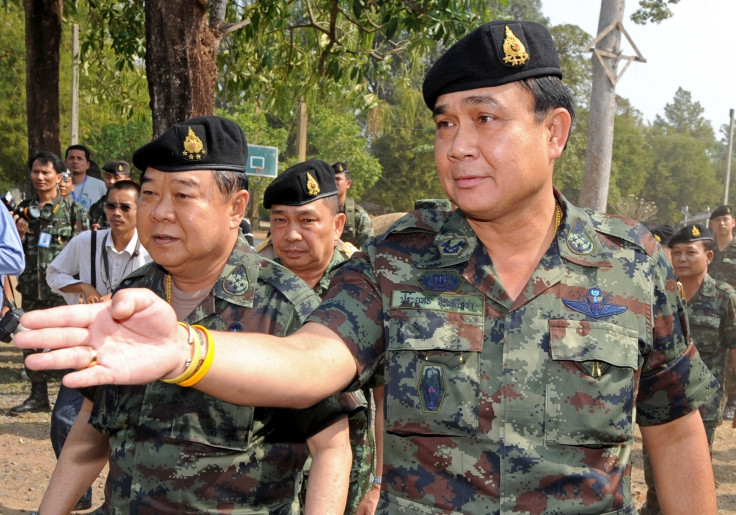Thai junta chief pushes for 2017 election in spite of imminent military rule vote
Human Rights Watch has condemned the draft resolution as 'endorsing unaccountable military involvement'.

Days before Thailand is due to vote in a controversial referendum, the country's junta chief has said that a general election will take place in 2017 regardless of the referendum outcome.
Millions of Thais are set to take to the polls on 7 August to vote on whether they should accept a draft constitution drawn up by the military-backed National Council for Peace and Order (NCPO). According to critics, the proposed constitution would weaken the role of elected officials and extend the military's influence in Thailand. If the country votes to approve the draft constitution, the military junta would be able to claim legitimacy and plan the general election in 2017.
Sunai Phasuk, Thailand Senior Researcher for Human Rights Watch, told IBTimes UK: "The draft constitution endorses unaccountable military involvement in governance even after a new government takes office. The parliament and the government will not have the power to make policy independently."
Phasuk emphasised that approval of the constitution would also allow the junta to handpick all 250 senators and allocate senate seats for military commanders and the police chief, who are members of the NCPO. These senators would effectively join the elected MPs in the House of Representatives to vote for the new prime minister, which would create the opportunity for junta chief General Prayuth Chan-ocha or other junta members to be selected.
Speaking to reporters at a military base in the Nakhon Nayok province on 5 August, Chan-ocha said: "Over the next two days the future of the country will be decided. We need to hold a general election in 2017 because that is a promise we made."
According to Reuters, senior officers have shown that the military's ambition through the new constitution is to make coups unnecessary by ensruing that the military has a consistent role in overseeing Thailand's economic and political developments. However, the junta has insisted that the constitution is not aimed at perpetuating military rule, but instead will serve to enhance the next Government's ability to fight against corruption.
Although human rights activists have criticised the draft constitution for extending too much power to the unelected NCPO, concerns have also been raised about what might happen in Thailand votes "no" in the referendum.
Phasuk said: "If the draft constitution is rejected, the junta will still remain in power. General Prayuth publicly announced that he would not step down if the majority of Thai voters say no to the draft constitution. There is no way out for Thai people to break free frm the junta's choking grip."
According to the Guardian, more than 200,000 police officers are expected to be deployed at 94,000 polling stations on 7 August. Official campaigning for the referendum has been banned and a number of activists and at least one journalist have been arrested under the controversial Article 61 of the Referendum Act that prevents the media from spreading "false information", as well as "violent, aggressive, vulgar or coercive" information by individuals.
© Copyright IBTimes 2024. All rights reserved.







